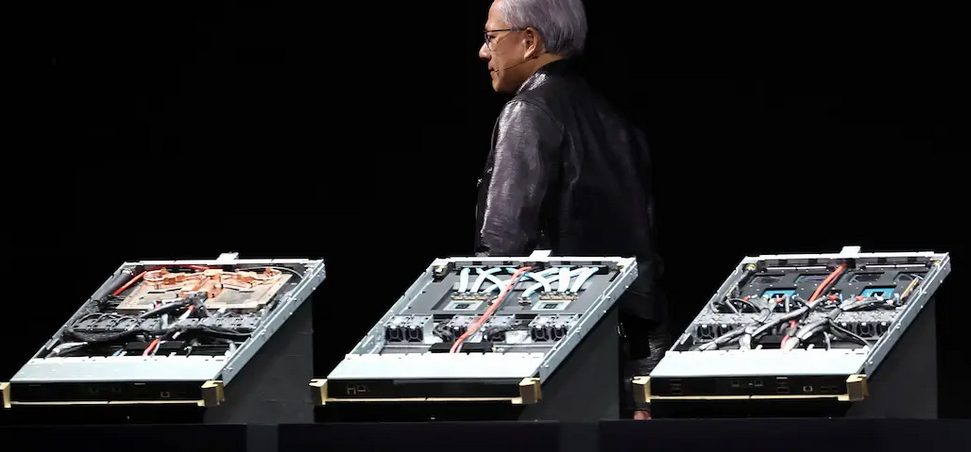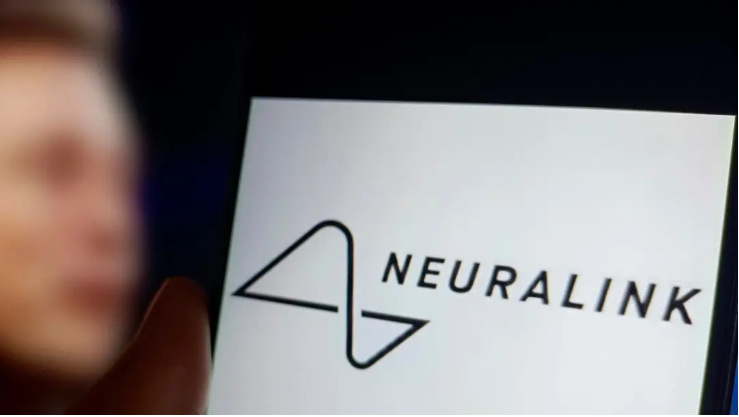Nvidia Unveils 'Superchips' to Power AI
Nvidia, a top global computer chip manufacturing company for artificial intelligence (AI) technology, announced its newest series of graphics processing unit (GPU) chips.
Facts
- Nvidia, a top global computer chip manufacturing company for artificial intelligence (AI) technology, announced its newest series of graphics processing unit (GPU) chips.1
- The new chips, named Blackwell chips after the scholar David Blackwell, consist of 208B transistors, requiring more powerful production techniques, and have the ability to link to other chips.2
- While the company's existing GPUs are already reportedly ahead of competitors such as AMD and Intel, the Blackwell chips will be even more powerful and 25 times more energy efficient.3
- Among the AI capabilities Blackwell chips will create include the creation of 3D videos simply by speaking to a computer — more advanced than the current speech and image-generating abilities.2
- Nvidia also announced its humanoid robot program called Project Groot, which the company describes as giving robots the ability to "learn from a handful of human demonstrations so it can help with everyday tasks and emulate human movement just by observing us."1
Sources: 1Al Jazeera, 2Fortune and 3Blue Mountain Eagle.
Narratives
- Narrative A, as provided by Morning Star. Nvidia is on a roll and is only growing stronger. Despite its stock taking a dip following this announcement — likely due to a quick sell-the-news reaction — some estimates project the company to reach $1.2K per share. The optimistic outlook is reasonable given that its latest line of hardware is 30 times as powerful as previous generations, and the expectation of companies including Amazon, Apple, Google, and Meta to use these new chips.
- Narrative B, as provided by Science Daily. Since the emergence of the AI craze, governments across the world have rightly voiced concerns over software. However, the only way generative AI software can be advanced is if the hardware that powers it advances. Leading AI companies like Amazon, Microsoft, and Google are also the only ones able to purchase these chips, so there should be laws in place to discourage monopolization and allow smaller innovators a chance to thrive in the market.







